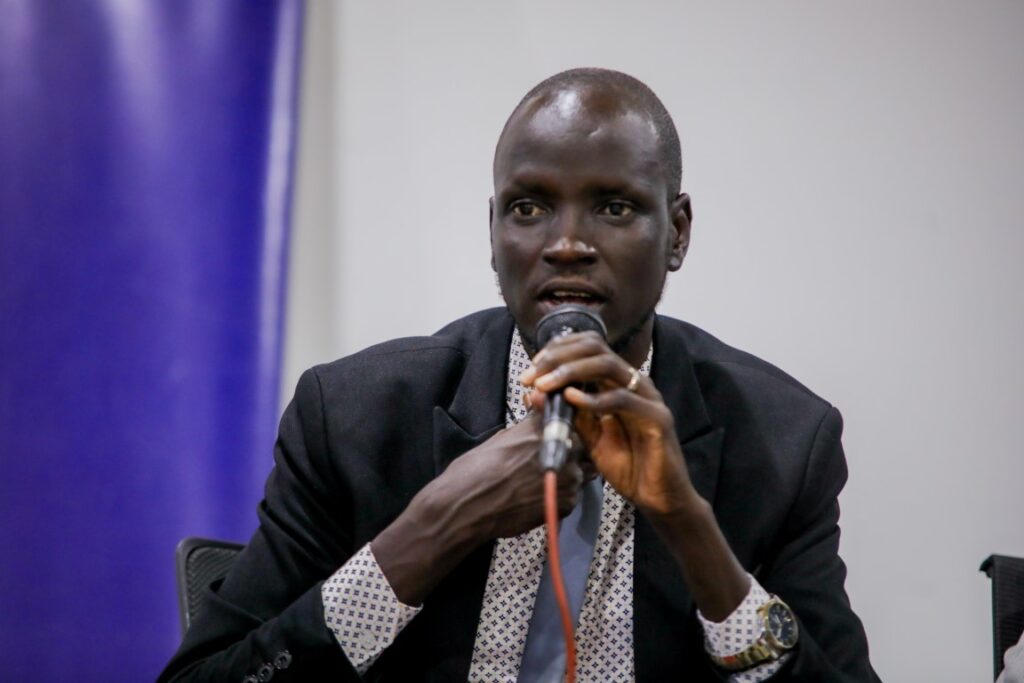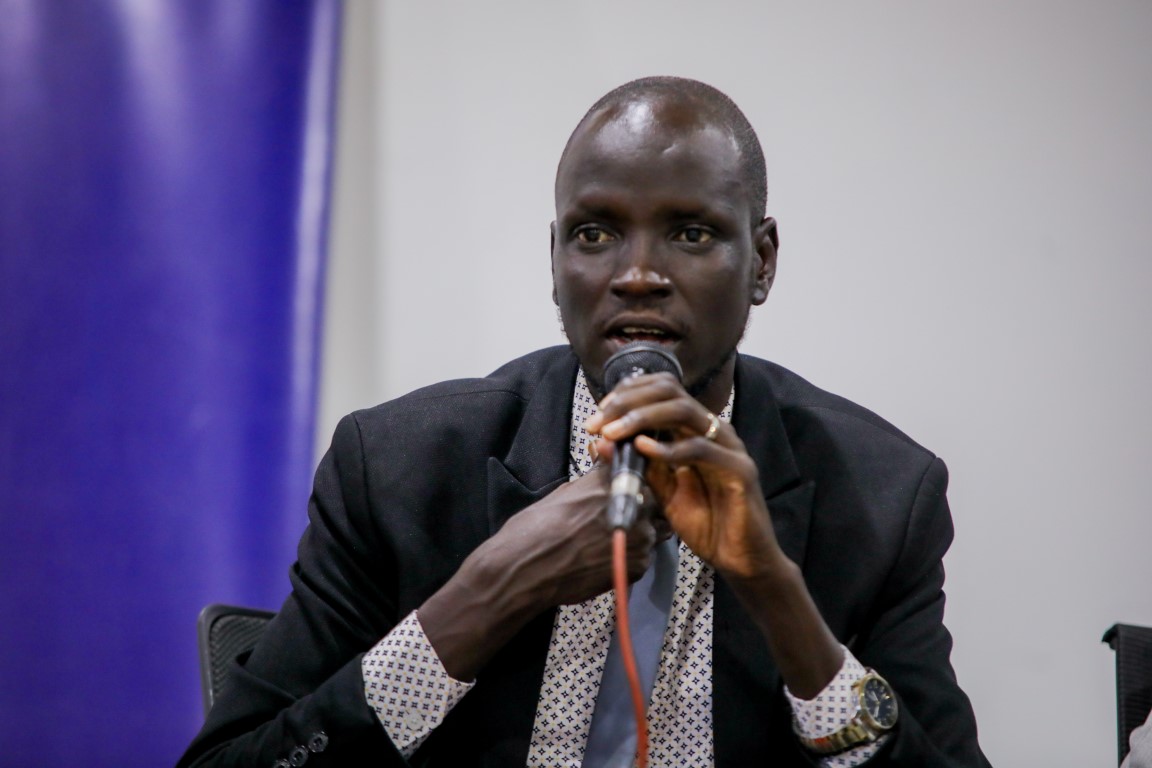South Sudan's English Daily Newspaper
"We Dare where others fear"

By Majak Daniel Kuany
On April 22nd, 2024, the Union of Journalists of South Sudan (UJOSS) with its partners, South Sudan Human Rights Defenders network and intermediary partner Nonviolent Peace Force initiated a learning exchange and sharing of best practices visit to Kigali.
Every institution the team visited offered a detailed information of the history of the genocide against the Tutsi and an overview on their work, structure, strategies, achievements and challenges they faced including their role in promoting social justice and democracy.
The exchange visit was designed to aid UJOSS and SSHRDN in building a network and evaluating each other’s best experiences and practices to draw lessons for effective mitigating of human rights risks.
We, the three visiting institutions, would like to express our appreciation to Rwanda Journalists Association (ARJ) and Rwanda Cooperation Initiative for the well-coordinated effort. The team was able to hold talks with 12 institutions about media, democracy, and the human rights situation in Rwanda thanks to the restless synergy of the two institutions.
Why Rwanda?
Rwanda’s transition system has resulted in a stable, peaceful, and reconciliatory beacon of hope in the region and Africa. Countries like South Sudan can benefit from this by drawing lessons from conflict management.
Rwanda is set to hold its presidential and parliamentary elections in July of this year, similar to South Sudan’s scheduled elections in December 2024. It’s crucial for the media to get first-hand information about the coverage of the electoral cycle.
It has been a visit full of awe and admiration from the time we landed in Kigali, and we can`t help but talk about every little detail of the beautiful environment of the land of a thousand hills.
Experiences
Listening to the testimonies of survivors in a short video documentary was a heart-wrenching experience during our visit to the Kigali Genocide Memorial. After visiting the memorial’s archived evidence, we became convinced that acknowledging the past is essential to rebuilding and rewriting the future.
During our six-day exchange visit, we observed that Rwandan institutions have embraced peace, unity, and created a prosperous country.
Journalists and media workers have been able to do their work without interference from both state and non-state actors due to an enabling media environment created by the existing legal frameworks.
The painful experience of the 1994 genocide against Tutsis has shaped Rwandan systematic governance that is anchored on respecting the rule of law.
A participatory approach has been adopted by the country in all aspects of governance, thanks to the strong political and public will to serve humanity.
Lessons
Rwandans have made the decision to think big. The country is enjoying everything today because of leadership that is accountable and responsible.
Respect for the rule of law. Both individuals and institutions are given the opportunity to operate within the required legal standards.
Policies and governance. In order to gauge the performance of individuals, a performance contract is necessary for every employee, especially public institutions.
Governance
The Rwandan government is a multi-party system where the parties are forbidden from spreading divisionism on ethnic ideology. The Rwandan people’s opinion on the country’s developments has been consistently appreciated by President Paul Kagame. It is an inspiring idea to grasp that the current political system serves the Rwandan people.
Media independence is flourishing because media institutions like the Rwandan Media Commission are self-regulating. This has enabled journalists and media houses to strictly adhere to the 2013 media policy. The country is currently considering how to integrate new digital infrastructure into its media policy.
Home- grown solution
The mandate of this Rwandan-based solution is to preserve, protect, and promote Rwandan cultural values and history to accelerate their development. The objective of this approach is to encourage the principles of good governance in all institutions and the general public to reach its goal ‘’The Rwanda We Want.”
Rwanda 2050 vision entails transparency between citizens and leaders, enhancing service delivery, combating corruption, combating forms of injustice, and involving citizens in policy and decision-making.
Principles
Integrity, transparency, responsibility, professionalism, and accountability are among the principles that Rwanda exemplifies, which have shaped its citizens’ character.
In contrast to other principles, the accountability principle has an inherent understanding of ownership of what one has to offer to the country. It has enabled Rwandans to steer clear of becoming a nation that apportions blame, has a hierarchy, or is held accountable by someone else.
Through the use of performance contracts, this decentralized system has been shaped by this principle discourse.
To sum up, the lessons learned from Rwanda in the institutions we visited are both inspiring and educational, and we believe that South Sudan will imitate Kigali in the near future.
Media Opportunities
The New Times
In our visit to The New Times, The Rwanda’s leading daily, we had a chance to meet with the young, energetic team and their youthful management, who are willing to sign a Memorandum of Understanding with South Sudanese media houses. There is now an opportunity for the three English daily newspapers in Juba to reach a deal with The New Time regarding news sharing including other media content related aspect of cooperation.
IGIHE, is also a leading online newspaper in Rwanda and is willing to have South Sudanese journalists and media houses to establish partnership.
We will send an email and any willing journalist or media house can now start discussing the partnership terms directly with the Two-Rwandan media outlets.
If you have any comments or questions, you can contact the head of the delegation on kuanyalier@gmail.com or +211925848660.




